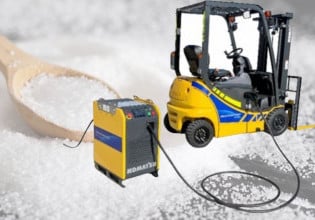EU Clears Proposed Acquisition of Sanyo by Panasonic, Subject to Conditions
The European Commission has cleared under the EU Merger Regulation the proposed acquisition of Sanyo Electric Co., Ltd. by Panasonic Corp.. The decision is conditional upon the divestment of certain battery production facilities in markets where the Commission identified competition concerns. In view of the remedies proposed, the Commission concluded that the operation would not significantly impede effective competition in the European Economic Area (EEA) or any substantial part of it.
Competition Commissioner Neelie Kroes said "In view of the remedies offered, I am satisfied that competition will remain vigorous after the merger and that purchasers of batteries will continue to benefit from choice and competitive prices."
The Commission’s investigation identified competition concerns in a number of battery markets where the merged entity would have a significant market share. These are the markets for primary cylindrical lithium batteries, portable rechargeable nickel-metal hydride batteries and rechargeable coin-shape batteries based on lithium.
Primary cylindrical lithium batteries are particularly well suited for applications that require strong bursts of power and where the battery is used for long periods without replacement (e.g. alarms, utility meters).
Portable rechargeable nickel-metal hydride rechargeable batteries are used in a wide range of products like power tools, personal care products (such as shavers, toothbrushes and epilators), toys, portable scanners and two-way radios. Rechargeable coin-shape batteries based on lithium are used principally as back-up power for real time clocks in mobile phones and digital still cameras as well as in certain other applications such as watches, laptops and keyless entry systems for cars.
To remedy the concerns raised by the Commission relating to cylindrical lithium and rechargeable coin-shape batteries, the companies made the commitment to divest a production plant that currently produces both these types of battery. The proposed transaction, as modified by this commitment, would therefore not result in any increase in market share in cylindrical lithium and rechargeable coin-shape batteries.
Concerning portable rechargeable nickel-metal hydride batteries, the companies agreed to divest one of the companies’ portable nickel-metal hydride businesses to eliminate any increase in market share in this product market.
The Commission worked in close cooperation with the US Federal Trade Commission and the Japanese Fair Trade Commission on this case in the framework of bilateral cooperation agreements between the respective authorities.






